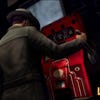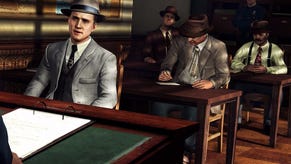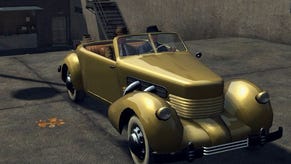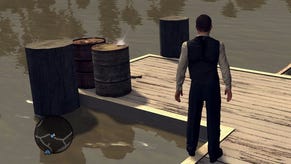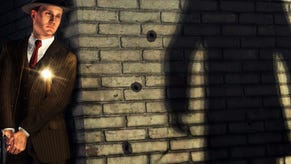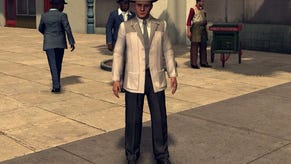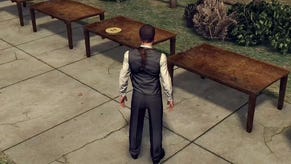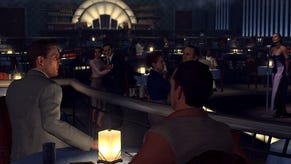L.A. Noire
Face value.
The idea is that the actors' performances will tell you when a suspect is lying (or not telling the whole truth) and prompt you to push harder with a 'doubt' option, when you can't actually disprove a lie with evidence. In terms of raising the tension and your attentiveness during key scenes, it works brilliantly, helped by some subtle audio cues.
Sadly, the script's dedication to realistic characterisation and dialogue often plunges these interrogations into grey areas where the correct responses are poorly defined and hard to suss out, irrespective of the suspect's nervous shifting. And while failed action scenes can be replayed, interrogations can't without starting the entire case again. You can use 'intuition' points, earned as you rank up, to eliminate options if you're stuck - but you will get questions wrong regardless.
So the plot has a habit of progressing to its conclusion regardless of how well or badly you perform. L.A. Noire's game world may be impressively open, but you consistently hit the narrative equivalent of invisible walls. It's initially disappointing to realise how prescribed its corridor of story is, how carefully led by the hand you are, and how little you can affect events.
The gameplay is not a question of success or failure, then, but of the quality of your police work (graded by a star rating for each case). In fact, this is a powerful motivator on its own, and slam-dunking a key interrogation is quite the thrill. But if you're the sort of gamer who has to get everything right, it could be torture. You can replay earlier cases to try to improve your rating and see different results, but this is a painfully slow process with many unskippable scenes. It's yet to tempt me.
If you're willing to take the rough with the smooth and submit to the story, L.A. Noire will pay you back in spades - but you'll need patience, too. McNamara is better at the big picture than he is at day-to-day characterisation and plotting, which can be workmanlike. Early cases are unremarkable in themselves, and Phelps starts out as a priggish stuffed shirt surrounded by clichés. The sinister Irish captain, the boorish alcoholic old-timer, the slick vice operator - they're all here.
After a good few hours, however, you begin to join the dots. Cases run into each other and subplots (about a shady psychiatrist, a torch singer and Phelps' wartime service) gain traction; a big, complex fiction develops its own momentum and drags you along with it, bringing the characters to life as well. You don't often find storytelling this involved in games outside of RPG epics, but it's a shame it doesn't draw you in sooner.
L.A. Noire is slow but quietly engrossing; its mechanics are suspect, but you can't fault the ambition, attention to detail and commitment that went into its making. It risks stumbling over its own earnestness at times, but it's saved by its star - and I don't mean Staton, who does his best with a dry character.
That star is Los Angeles: as bizarre, threatening and fascinating in this virtual 1947 as it is in the real world today. L.A. Noire may owe its vision of the city to Ellroy and others, but as a game, it can depict it in a way those others can't. McNamara, Team Bondi and Rockstar have taken that responsibility seriously, convincingly peeling away the layers of a sick society over the game's length. That - not the curse words or the grim subject matter or the naked corpses - is what makes L.A. Noire a genuinely mature game.



